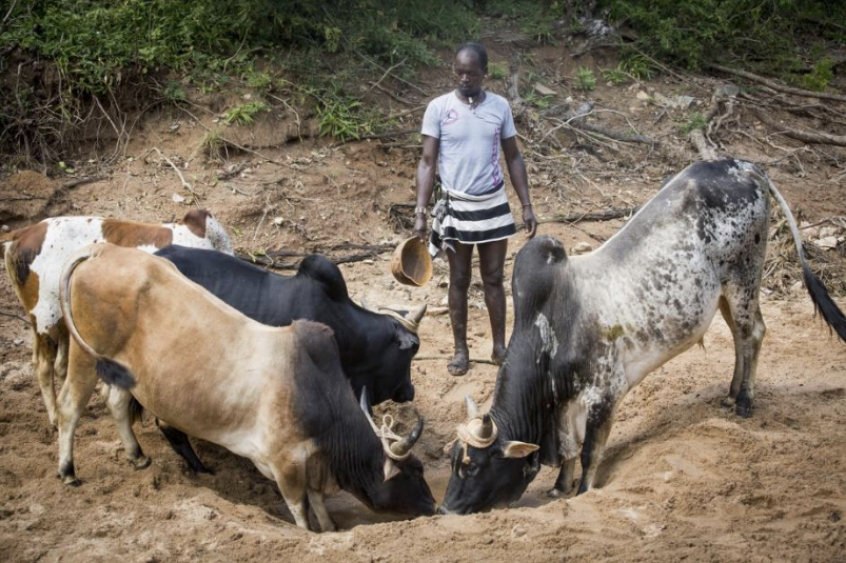
The international community is not doing enough to mitigate the hunger crisis unfolding across East Africa, Christian Aid has said.
The Christian development agency said in a new report, "Ripping Off the Band Aid", that hunger in the region has more than doubled in the last year.
In Ethiopia, there has been a dramatic increase in the number of people living with food insecurity, from 5.2 million to 20 million.
In Kenya, there are now 4.1 million people facing food insecurity, compared to 2.1 million a year ago.
Mbaraka Fazal, Christian Aid's Kenya-based Global Humanitarian Manager, said, "The hunger crisis has seen men and boys forced to trek further for water and pastureland, exacerbated conflict over these scarce resources, and leaving women and girls at greater risk by being left behind for longer periods without a regular income or basic items.
Conflict, flooding, desert locust infestations, and the effect of Covid on prices and supply chains have compounded food shortages in the region.
Christian Aid said that the crisis has exposed the extent to which the present aid system "isn't fit to respond to the ever-increasing scale of emerging crises".
The report recommends scaling up local-level approaches so that they build on existing capacity and local expertise, and can respond quickly and flexibly to emerging needs.
Fazal said it was a "moral outrage" that people are dying of hunger despite there being enough food in the world to feed everyone.
"In a world where there is enough food for everyone it is a moral outrage that people are dying of hunger," said Fazal.
"While helping people currently facing life-threatening hunger is of the utmost importance, so too must we start thinking longer term. We must accept the aid system is but a sticking plaster that is not fit to respond to the ever-increasing scale of emerging crises.
"Christian Aid's experience of working with local partner organisations in Kenya, Ethiopia and South Sudan shows that people's ability to withstand failed harvests and rising food prices can be significantly improved with supportive preventive action.
"To break the cycle of food hunger, it's time to rip off the band-aid and invest in building resilient communities during and between crises. That demands government backed finance and local knowledge to complement early warning systems and anticipatory action."













